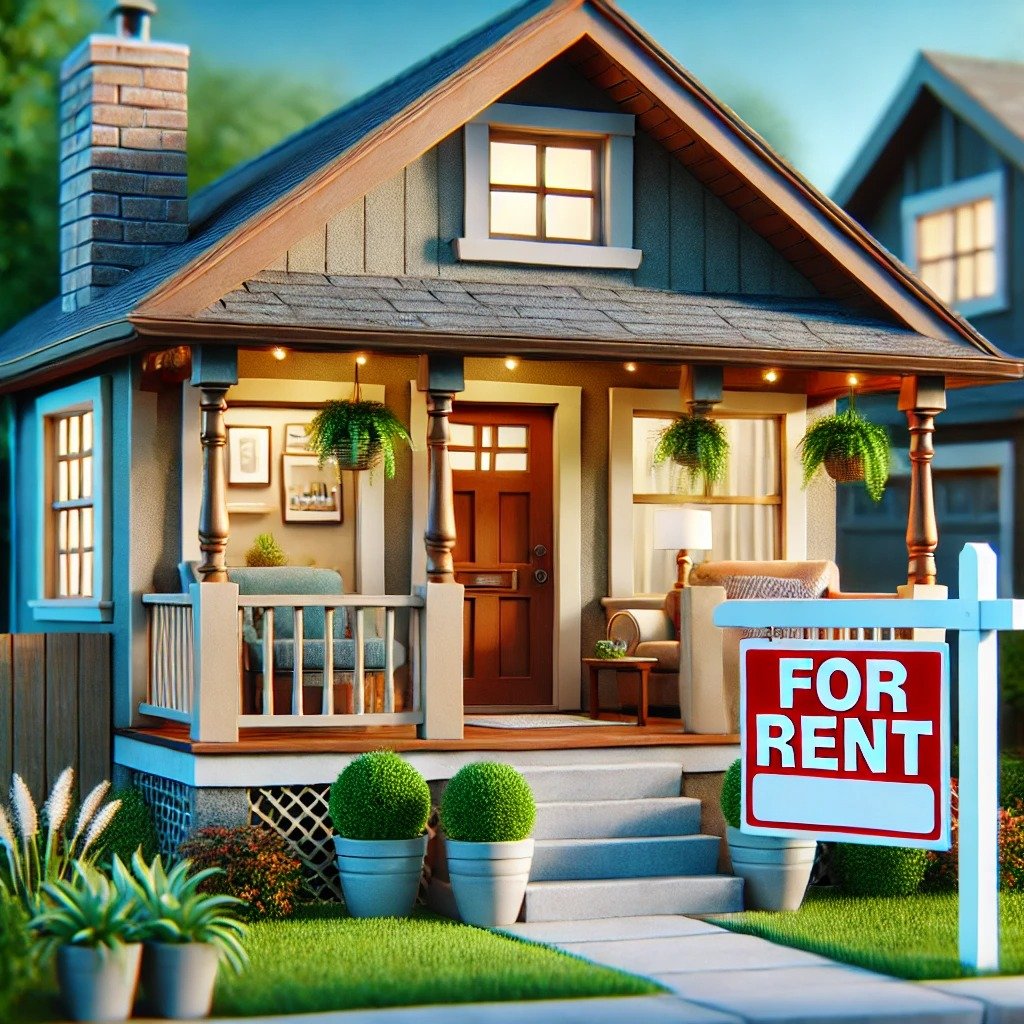Renting out your home can be a lucrative opportunity, whether you’re looking to generate extra income, cover mortgage payments, or simply utilize a property that’s currently unoccupied. However, becoming a landlord is not a decision to be taken lightly. It involves legal, financial, and practical responsibilities that you must be fully prepared for. In this guide, we’ll explore everything you need to know before renting your home, from preparing the property to understanding your rights and obligations as a landlord.
1. Understand the Legalities
Before renting out your home, it’s crucial to familiarize yourself with the legal aspects involved. Rental laws vary by state and locality, so you’ll need to ensure compliance with all relevant regulations.
- Zoning Laws: Check local zoning regulations to ensure that renting your property is allowed. Some areas have restrictions on short-term rentals, or even renting out properties in general.
- Landlord-Tenant Laws: Familiarize yourself with landlord-tenant laws, which govern things like security deposits, lease agreements, eviction procedures, and more. These laws protect both you and your tenants, so understanding them is essential.
- Rental Licenses: Some cities or counties require landlords to obtain a rental license before leasing a property. Make sure to check if this applies to your area.
- Tax Implications: Renting out your home may have tax implications. Rental income is generally taxable, and you may need to file additional paperwork with the IRS. Consulting with a tax professional is advisable to understand your obligations.
2. Prepare Your Property
Your property needs to be in good condition before you can rent it out. A well-maintained home not only attracts tenants but also minimizes potential disputes and repair costs.
- Inspect the Property: Conduct a thorough inspection of your home to identify any necessary repairs. This includes checking the plumbing, electrical systems, roofing, and appliances. Fix any issues before listing your property.
- Safety Measures: Ensure that your property meets all safety standards. Install smoke detectors, carbon monoxide detectors, and fire extinguishers. Check that all doors and windows lock securely.
- Clean and Declutter: A clean, clutter-free home is more appealing to potential tenants. Deep clean the entire property, including carpets, windows, and appliances. Consider repainting walls if they look worn or outdated.
- Furnish or Unfurnish?: Decide whether you want to rent your home furnished or unfurnished. Furnished rentals can command higher rent but may appeal to a smaller pool of tenants. Unfurnished homes, on the other hand, are often preferred by long-term renters.
3. Determine the Rent Price
Setting the right rent price is crucial to attracting tenants while ensuring you cover your costs.
- Research the Market: Look at comparable rental properties in your area to gauge the going rate for similar homes. Consider factors like location, size, amenities, and condition.
- Calculate Costs: Determine all your costs associated with renting, including mortgage payments, property taxes, insurance, maintenance, and potential vacancy periods. Ensure that the rent covers these expenses and provides a profit margin.
- Adjust for Demand: Consider the local rental market’s supply and demand. If there’s high demand for rentals in your area, you may be able to charge a premium. Conversely, if supply exceeds demand, you might need to be more competitive with your pricing.
4. Screen Tenants Carefully
Finding the right tenant is one of the most important aspects of renting your home. A good tenant can make the rental process smooth and hassle-free, while a bad tenant can lead to financial losses and legal disputes.
- Application Process: Create a thorough rental application that collects information on the applicant’s employment, rental history, and references. This will help you assess their reliability as a tenant.
- Credit and Background Checks: Conduct credit checks to ensure the tenant has a history of paying bills on time. Background checks can reveal any criminal history, which may be relevant depending on your criteria.
- References: Contact previous landlords and employers to get a sense of the tenant’s behavior and reliability. Past rental experiences can provide valuable insight into how the tenant might treat your property.
- Rental Agreement: Draft a clear and comprehensive rental agreement that outlines the terms and conditions of the lease. This should include rent amount, due dates, late fees, security deposit, lease term, maintenance responsibilities, and any other pertinent details.
5. Understand Your Financial Responsibilities
As a landlord, you have financial responsibilities that go beyond simply collecting rent. Managing these effectively is key to maintaining a profitable rental property.
- Mortgage and Insurance: If you still have a mortgage on the property, ensure that your lender allows you to rent it out. You may also need to adjust your homeowner’s insurance to a landlord insurance policy, which covers additional risks associated with renting.
- Property Taxes: Be prepared for potential increases in property taxes, especially if your home is reassessed as an income-generating property.
- Maintenance and Repairs: As a landlord, you’re responsible for maintaining the property in a habitable condition. Budget for ongoing maintenance and unexpected repairs, and ensure you have reliable contractors on hand.
- Reserves for Vacancy: Plan for potential vacancies by setting aside a reserve fund. This will help you cover expenses during periods when the property is not generating rental income.
6. Market Your Property
Effective marketing is essential to finding tenants quickly and minimizing vacancy periods.
- Photography: High-quality photos are crucial for making a good first impression. Invest in professional photography or ensure your photos showcase the property’s best features in good lighting.
- Listing Description: Write a compelling listing description that highlights the property’s unique features, such as location, amenities, and recent upgrades. Be honest and transparent to attract the right tenants.
- Advertise: List your property on popular rental websites like Zillow, Craigslist, and local classifieds. Social media platforms and word of mouth can also be effective in reaching potential tenants.
7. Manage the Rental Process
Once you have a tenant, managing the rental process effectively is key to ensuring a positive experience for both parties.
- Communication: Maintain open and clear communication with your tenant. Address any issues or concerns promptly to avoid misunderstandings and disputes.
- Rent Collection: Set up a reliable system for rent collection. This could be through direct bank transfers, online payment platforms, or a property management service.
- Property Inspections: Regular inspections help you ensure the property is being well-maintained. Schedule periodic check-ins, but be sure to respect the tenant’s privacy and provide adequate notice.
- Handling Disputes: Be prepared to handle disputes calmly and professionally. Familiarize yourself with the process for dealing with issues like late payments, property damage, or lease violations.
8. Consider Hiring a Property Manager
If managing the rental process seems overwhelming, you might want to consider hiring a property manager.
- Pros and Cons: A property manager can handle tenant screening, rent collection, maintenance, and legal issues, saving you time and stress. However, this service comes at a cost, usually a percentage of the monthly rent.
- Finding a Manager: If you decide to hire a property manager, do your research to find a reputable company with experience in managing properties similar to yours. Ask for references and read reviews to ensure you’re making the right choice.
Conclusion
Renting out your home can be a rewarding experience, but it requires careful planning and management. By understanding the legal, financial, and practical aspects of being a landlord, you can ensure a smooth and profitable rental process. Whether you choose to manage the property yourself or hire a professional, being well-prepared will help you avoid common pitfalls and enjoy the benefits of your rental income.











Leave a Reply